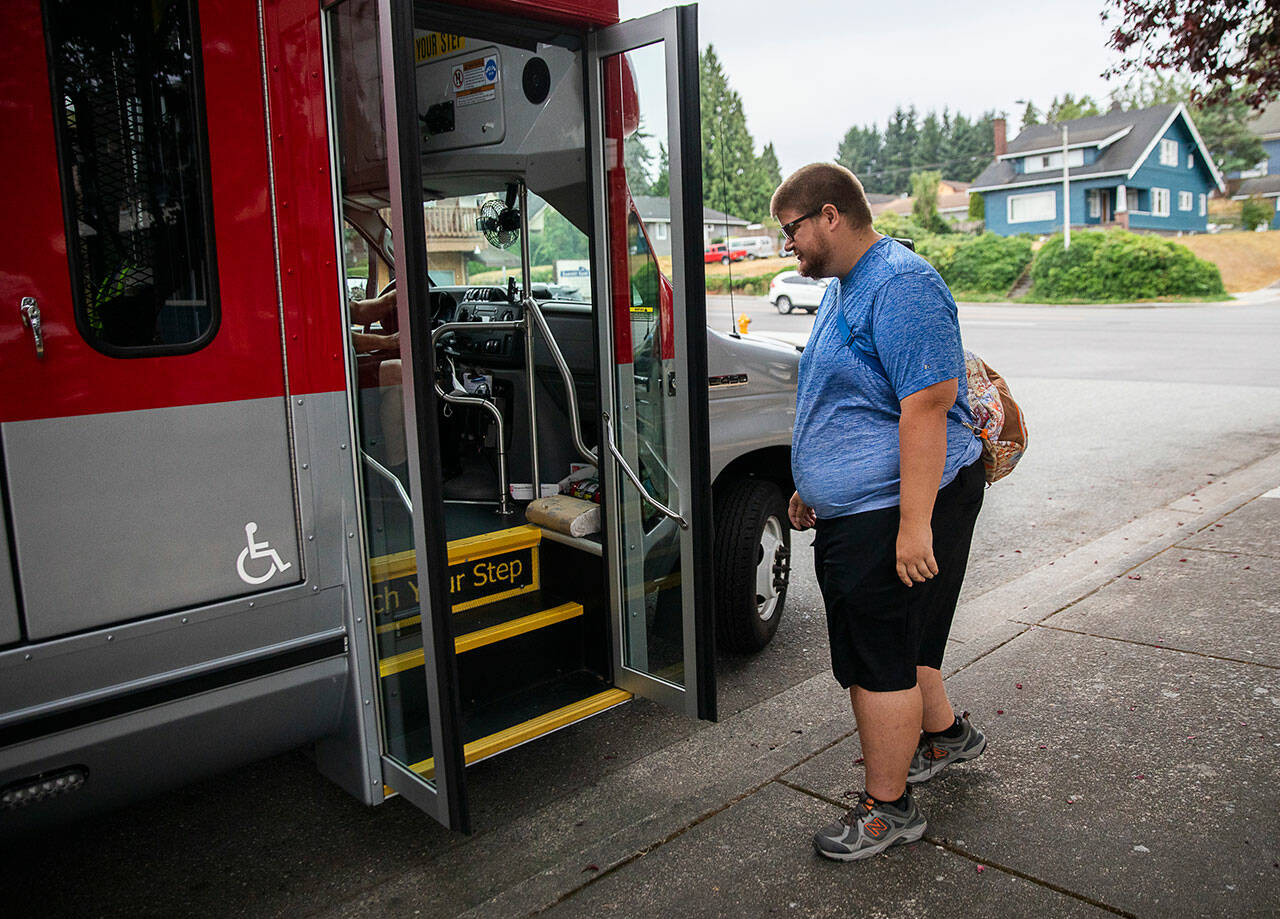Ditching their cars for seven days gave several Snohomish County elected leaders and transit officials a taste of the hardships endured by people who must rely on public transit.
In a video conference hosted by the Snohomish County Transportation Coalition (Snotrac) Oct. 17, they discussed their experiences from Disability Mobility Initiative’s Week Without Driving challenge in mid-September. The event got a proclamation from Gov. Jay Inslee and Snohomish County Executive Dave Somers, among others.
This year, the group sought people in elected positions to participate with a goal of getting more city and county governments attuned to the tall task of getting around without driving yourself.
Disability Mobility Initiative director Anna Zivarts said the event’s second year drew 450 people including 80 public officials, participated in the weeklong challenge. Another 15 transit agencies supported and promoted it.
In Snohomish County, it drew state legislators, a county council member, several city council members and the directors of Community Transit and Everett Transit.
Most of them said they drive alone when they need to get somewhere, with the exception of some who work from home.
State Sen. June Robinson, a Democrat from Everett, said driving is convenient and necessary for her job in a location that’s about 1 mile away from the nearest bus stop in a “not particularly pedestrian-friendly” area.
“It just takes longer, that’s what I always learn,” Robinson said.
Everett City Council member Paula Rhyne said she usually walks to work at the Snohomish County campus in downtown Everett. But late-night meetings in either position will push her to drive in part because of less-frequent bus service at night, she said.
Liz Vogeli, an Everett council member, had a similar experience with evening service. She often used the Swift bus rapid transit line, but learned from experience it didn’t run past 10 p.m. Saturday or 9 p.m. Sunday.
“There was a lot of waiting,” Vogeli said.
State Rep. Shelley Kloba, a Democrat from Kirkland, said working from home was a privilege, citing her ability to schedule phone and video meetings consecutively instead of planning for travel time between them.
But Kloba took the challenge as an opportunity to use the King County Metro on-demand service in the Juanita area of King County. It also got her in the habit of looking for ways to use transit more often.
“That kind of front-line observation can only be a positive in trying to inform any decisions that we make in terms of transit,” Kloba said.
Rhyne said she wanted to use the Week Without Driving experiences to improve the ability of people to get around without a car. Specifically, she cited the need for better cross signals, crosswalks, protected bike lanes “more than just ‘sharrows’ on the street,” sidewalks and street lighting.
Snohomish County Council member Megan Dunn committed to similar efforts in advocating for bike and pedestrian infrastructure and flexible meeting times that allow people to catch the bus.
Community Transit is looking to expand its bus service, including the Swift lines. That requires more drivers and maintenance employees, which was a struggle this year after the agency implemented a COVID-19 vaccine requirement.
A new ride-hailing service from Community Transit in the Alderwood area of Lynnwood can bring riders into its fixed-route system. One of the program’s features is that someone who uses a wheelchair can request an accessible van as long as they’re in the defined area.
In the meantime, the thousands of people in the state who don’t drive will wait for the changes.
Have a question? Call 425-339-3037 or email streetsmarts@heraldnet.com. Please include your first and last name and city of residence.
Talk to us
> Give us your news tips.
> Send us a letter to the editor.
> More Herald contact information.

























